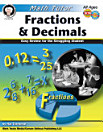Inferno SparkNotes Literature Guide
apr. 2014 · Hachette UK
E-bok
112
Sidor
family_home
Kvalificerad
info
reportBetyg och recensioner verifieras inte Läs mer
Om den här e-boken
Inferno SparkNotes Literature Guide by Dante Alighieri
Making the reading experience fun!
When a paper is due, and dreaded exams loom, here's the lit-crit help students need to succeed! SparkNotes Literature Guides make studying smarter, better, and faster. They provide chapter-by-chapter analysis; explanations of key themes, motifs, and symbols; a review quiz; and essay topics. Lively and accessible, SparkNotes is perfect for late-night studying and paper writing.
Includes:
Making the reading experience fun!
When a paper is due, and dreaded exams loom, here's the lit-crit help students need to succeed! SparkNotes Literature Guides make studying smarter, better, and faster. They provide chapter-by-chapter analysis; explanations of key themes, motifs, and symbols; a review quiz; and essay topics. Lively and accessible, SparkNotes is perfect for late-night studying and paper writing.
Includes:
- An A+ Essay—an actual literary essay written about the Spark-ed book—to show students how a paper should be written.
- 16 pages devoted to writing a literary essay including: a glossary of literary terms
- Step-by-step tutoring on how to write a literary essay
- A feature on how not to plagiarize
Om författaren
Born Dante Alighieri in the spring of 1265 in Florence, Italy, he was known familiarly as Dante. His family was noble, but not wealthy, and Dante received the education accorded to gentlemen, studying poetry, philosophy, and theology. His first major work was Il Vita Nuova, The New Life. This brief collection of 31 poems, held together by a narrative sequence, celebrates the virtue and honor of Beatrice, Dante's ideal of beauty and purity. Beatrice was modeled after Bice di Folco Portinari, a beautiful woman Dante had met when he was nine years old and had worshipped from afar in spite of his own arranged marriage to Gemma Donati. Il Vita Nuova has a secure place in literary history: its vernacular language and mix of poetry with prose were new; and it serves as an introduction to Dante's masterpiece, The Divine Comedy, in which Beatrice figures prominently. The Divine Comedy is Dante's vision of the afterlife, broken into a trilogy of the Inferno, Purgatory, and Paradise. Dante is given a guided tour of hell and purgatory by Virgil, the pagan Roman poet whom Dante greatly admired and imitated, and of heaven by Beatrice. The Inferno shows the souls who have been condemned to eternal torment, and included here are not only mythical and historical evil-doers, but Dante's enemies. The Purgatory reveals how souls who are not irreversibly sinful learn to be good through a spiritual purification. And The Paradise depicts further development of the just as they approach God. The Divine Comedy has been influential from Dante's day into modern times. The poem has endured not just because of its beauty and significance, but also because of its richness and piety as well as its occasionally humorous and vulgar treatment of the afterlife. In addition to his writing, Dante was active in politics. In 1302, after two years as a priore, or governor of Florence, he was exiled because of his support for the white guelfi, a moderate political party of which he was a member. After extensive travels, he stayed in Ravenna in 1319, completing The Divine Comedy there, until his death in 1321.
Betygsätt e-boken
Berätta vad du tycker.
Läsinformation
Smartphones och surfplattor
Installera appen Google Play Böcker för Android och iPad/iPhone. Appen synkroniseras automatiskt med ditt konto så att du kan läsa online eller offline var du än befinner dig.
Laptops och stationära datorer
Du kan lyssna på ljudböcker som du har köpt på Google Play via webbläsaren på datorn.
Läsplattor och andra enheter
Om du vill läsa boken på enheter med e-bläck, till exempel Kobo-läsplattor, måste du ladda ned en fil och överföra den till enheten. Följ anvisningarna i hjälpcentret om du vill överföra filerna till en kompatibel läsplatta.








